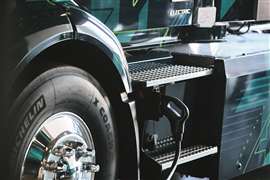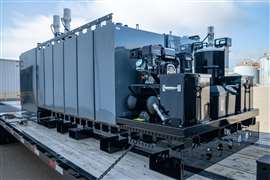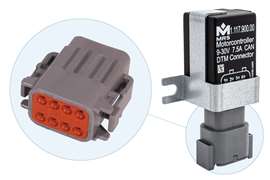Read this article in Français Deutsch Italiano Português Español
Street Smarts: California backs away from Advanced Clean Fleets reg
03 March 2025
Citing a new political landscape, CARB will not seek to enact its controversial rule.
The New Year has already been full of surprises. But there has been one development that savvy trucking industry observers saw coming weeks ago: In mid-January, the California Air Resources Board (CARB) withdrew its request for the waiver it would need from the U.S. Environmental Protection Agency for its controversial Advanced Clean Fleets (ACF) regulation.
 Despite the setback on ACF, CARB said it remains committed to pushing the North American trucking industry toward zero-emission vehicles. (Photo: Volvo Trucks)
Despite the setback on ACF, CARB said it remains committed to pushing the North American trucking industry toward zero-emission vehicles. (Photo: Volvo Trucks)
In many ways, the move is a simple acknowledgment of the new political landscape in the U.S. In a statement, CARB indicated that it was unlikely the Advanced Clean Fleets regulation would get approval from the Trump administration.
“The withdrawal is an important step given the uncertainty presented by the incoming administration that previously attacked California’s programs to protect public health and the climate and has said will continue to oppose those programs,” CARB Chair Liane Randolph said in a statement.
More to the point, the ACF rule was controversial from its inception.
Burden on Buyers
All previous emissions regulations placed the responsibility for producing and selling zero-emission (ZE) trucks on vehicle manufacturers. But for the time ever, if enacted, the ACF law would have required that truck buyers increasingly purchase ZE trucks. Fleets would have had to adhere to a phased-in schedule for ZE truck purchases based on fleet size and annual revenues.
And as if that wasn’t enough, ACF would have mandated the end of the manufacture of diesel- and gasoline-powered trucks in California in 2036. Moreover, it would have required all large trucking companies to convert their medium- and heavy-duty fleets to zero-emission battery-electric or hydrogen fuel cell models by 2042.
In other words, no fossil fuel-powered trucks would be operating on California roadways in less than 20 years.
However, legally, CARB must have EPA approval, through a waiver system, to enact any emissions regulations that would be stricter than federal emissions rules designated in the Clean Air Act.
Again, the new political landscape after the November 2024 elections made it near-certain that such an approval would not be forthcoming.
Given the controversial and aggressive mandates, it’s no surprise ACF was the target of a flurry of lawsuits from trucking associations in CARB states.
The Western States Trucking Assoc. (WSTA) and other industry groups had sued California over the rules. Reacting to the news that CARB was backing away from ACF, WSTA said blaming the Trump administration was “a diversionary tactic.”
“U.S. EPA received the original ACF waiver application in November of 2023 and had ample time to grant the waiver,” WSTA said in an official statement issued on January 21, 2025. “Clearly, U.S. EPA found ‘problems’ with the request (which we knew about last year) and, likely to save CARB the embarrassment of rejecting the waiver, CARB instead pulled the request and chose to blame Trump.”
Is ACT Next?
Despite the defeat, CARB remains defiant and insists it will continue to seek out ways to push the trucking industry into ZE trucks.
 Jack Roberts is a Tuscaloosa, Ala.-based independent journalist and licensed commercial driver with more than 20 years’ experience covering the North American and global trucking industries.
Jack Roberts is a Tuscaloosa, Ala.-based independent journalist and licensed commercial driver with more than 20 years’ experience covering the North American and global trucking industries.
The separate ACT regulation, which sets limits on what truck manufacturers can sell in California, does have a waiver from the U.S. EPA, granted in 2023.
However, truck dealers in California and other CARB states have complained that ACT requires them to maintain a delicate balancing act in being able to get customers the trucks they need. This is because ACT requires dealers to sell a certain number of ZE trucks in an effort to reduce the numbers of diesel-powered vehicles sold in the state.
This is surely why the American Truck Dealers (ATD) association, in its statement praising CARB’s withdrawal of the waiver request, brought up the possibility that the Trump administration could revoke waivers already granted.
“ATD has engaged with the Trump transition team to express support for its intention to revoke the remaining California ACT and Omnibus NOx CARB waivers,” the group said, “and will continue to press for a sensible and achievable emissions regulations that reflect the market realities of the industry.”
Major Victory for Trucking
Trucking advocacy groups expressed relief with the news that ACF was essentially dead in the water.
In a statement, Jacqueline Gelb, president of the American Truck Dealers (ATD) association, said ATD and the country’s heavy-duty truck dealers “are pleased and relieved that California has abandoned its completely unrealistic and unworkable Advanced Clean Fleets regulation, which would have forced trucking fleets to adopt zero-emission trucks at levels far above anything that is practical or sensible in today’s market and given today’s significant technological limitations.”
Gelb called CARB’s ZEV mandates a “mad dash” designed to force the commercial vehicle industry into technologies that she said are nowhere near ready for full-scale adoption. She said the rules have already devastated the market, noting that Class 8 truck registrations in California are down 50% year over year – a result, she said, of the combination of CARB’s Advanced Clean Truck (ACT) zero-emissions sales mandate and Omnibus Low NOx regulations (ACT II rule).
“California’s overly aggressive regulatory regime has prevented dealers from being able to stock or sell nearly enough newer, cleaner diesel trucks to our willing customers,” Gelb added.
David Heller, senior vice president of safety and government affairs for the Truckload Carriers Association, said CARB’s decision to not seek EPA approval for ACF was a “major victory” for the North American trucking industry.
“While this victory is one that must be celebrated, our work is just beginning,” Heller said. “Our industry has long been advocates for equipment that is environmentally friendly to create a better tomorrow, and our history has demonstrated exactly that. Now is the time to begin engaging with our representatives to lay out a strategy with achievable standards with real-world possibilities that places our industry in the driver’s seat.”
POWER SOURCING GUIDE
The trusted reference and buyer’s guide for 83 years
The original “desktop search engine,” guiding nearly 10,000 users in more than 90 countries it is the primary reference for specifications and details on all the components that go into engine systems.
Visit Now
STAY CONNECTED




Receive the information you need when you need it through our world-leading magazines, newsletters and daily briefings.
CONNECT WITH THE TEAM












